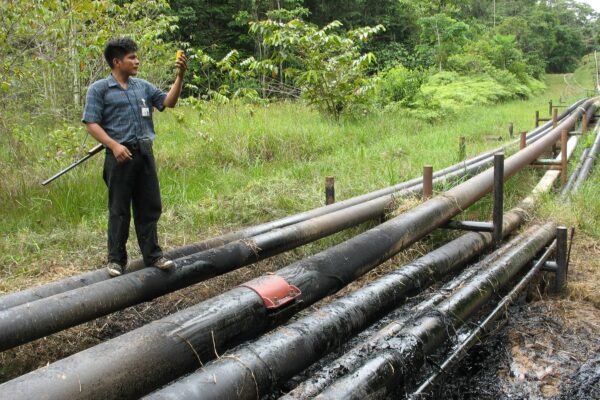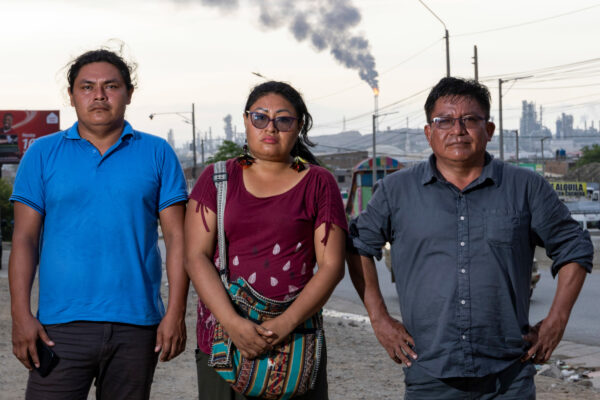WASHINGTON-More than five months after a deadly clash between police and indigenous protesters in the Peruvian Amazon killed at least 34 people, leading the government to roll back efforts to open up the region for oil and gas development and other extractive industries, a Peruvian indigenous leader said native communities are still searching for answers.
“We understand that there were deaths and that [bodies] were thrown into the river, but we don’t yet know the truth,” Daysi Zapata, president of the Interethnic Association for the Development of the Peruvian Rainforest, or Aidesep, said in an interview last week.
Zapata traveled to Washington to testify before the Inter-American Commission on Human Rights about the confrontation in the town of Bagua, where 24 police were killed after protests erupted on June 5 over two controversial land use decrees. Both the Peruvian government and Aidesep, which coordinated the demonstration, have denied instigating the conflict. “As indigenous people, we’ve never acted in violence,” said the 34-year-old Zapata, who grew up near oil and gas installations run by Argentina’s Pluspetrol. “The only thing we did was let the government know our discontent.”
But the Peruvian government sees it differently. “We have suffered an aggression that is the product of a conspiracy by those who don’t want Peru to progress,” President Alan Garcia said two days after the incident. A special commission formed by Peru’s Congress to investigate the events in Bagua is scheduled to present its conclusions by Dec. 9.
Zapata said it was “alarming” that the government waited until violence broke out before rescinding the so-called “jungle laws,” one of which is tied to the implementation of a free trade deal with the United States. After the repeal of the decrees, Aidesep and the government entered into a fragile dialogue, which nearly fell apart when the executive branch moved to force Aidesep’s dissolution. On Wednesday, Peru’s prime minister, Javier Velasquez Quesquen, said the government had backed off that threat in a bid to “smooth the road for a dialogue that is fruitful and promotes a climate of trust and peace among the Amazonian communities.”
The confrontation at Bagua is part of a growing trend across the Andean region, where Amazonian indigenous groups are seeking a greater voice in the development of natural resources on their ancestral lands. “Our policy is that we’re the owners of all the territory because we live there; we take care of it, we conserve it,” Zapata said. “We’re not extracting the things from the subsoil in order to sell them; on the contrary, we’re caring for them.”
But Zapata said her group isn’t opposed on principle to development and that indigenous peoples would warm to the idea if the Peruvian government adopts a more “inclusive” policy. Another crucial obstacle is obtaining official recognition and land titles for more than a thousand native communities that currently lack them. “When the native communities have been recognized and titled, yes, then we could talk about work for example, with mining [and] oil development,” she said.













